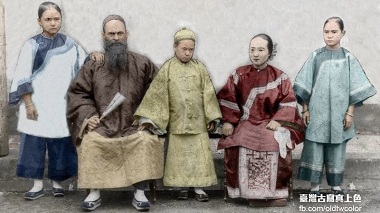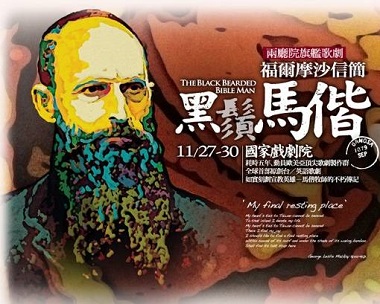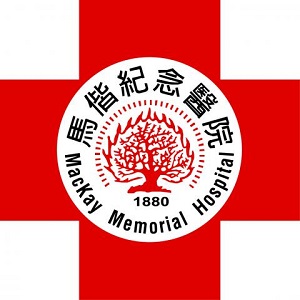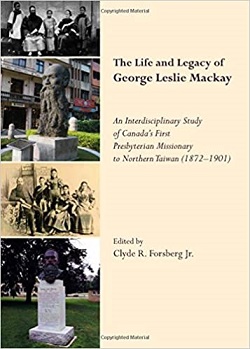
George Leslie Mackay and his family.
Vancouver Taiwanese Presbyterian Church is spearheading an effort to have pioneering missionary George Leslie Mackay commemorated on a Canadian stamp.
It would mark the 150th anniversary (2022) of his arrival in Taiwan, where he is regarded as a national hero.
Mackay (1844 – 1901) was the first foreign missionary to be commissioned by the Canada Presbyterian Church (predecessor of both the Presbyterian Church in Canada and the United Church of Canada). He arrived in Taiwan March 9, 1872.
A Change.org petition directed at Canada Post makes the case for commemoration:
“Mackay of Formosa” was the most famous missionary of his generation, noted for his unusual yet successful methods. He established the first hospital, first modern school, first school for women and first museum in Taiwan. He is remembered there in school textbooks, on a 2001 stamp, in statues, a museum, commemorative days and Mackay Memorial Hospital.
In Taiwan he married a Chinese woman, Tiun Chhang-mia (Minnie). She became the head of the Girl’s School, and worked as his partner and leader of the church. She is today recognized in Taiwan’s feminist history as Taiwan’s first woman to “stand up.”
In Canada Mackay vigorously opposed the head tax on Chinese. He advocated open immigration and argued that Canada needed people from all cultures to build the country. He is the forgotten pioneer of Canadian anti-racism and multiculturalism.
It is a surprise to people from Taiwan to learn that Mackay is unknown in Canada today. Commemorating him on a stamp for the 150th anniversary of Canada’s engagement in Asia would be a small step to reviving this forgotten history. If you support the Canadian values of equality, empowerment of women and fair immigration policies, values this noble man brought to Asia in 1872, please sign and share this petition.
Powerful legacy

The film ‘Mackay: The Black Bearded Bible Man’ is a reminder of the missionary’s significant role in Taiwan’s history.
When the Vancouver Taiwan Film Festival showed Mackay: The Black Bearded Bible Man three years ago, Charlie Smith interviewed Cecilia Chueh, CEO of the Taiwanese Canadian Cultural Society for The Georgia Straight.
Affirming how well respected Mackay still is in Taiwan, Chueh also stated that her grandfather was a student at a Mackay-founded school and became a Presbyterian minister.
A lengthy article by James R. Rohrer in the International Bulletin of Missionary Research on The Legacy of George Leslie Mackay underlined how fondly he is remembered in Taiwan:
In Taiwan, where Christians constitute roughly five to six percent of the populace, George Leslie Mackay remains a widely known folk hero. Every day thousands of people pass by wall-size photographs of Mackay and his students at Taipei’s Mackay Memorial Hospital, one of the most respected medical facilities in the island.
In 2001 the government in Taiwan issued a commemorative postage stamp to mark the centenary of his death.
Presbyterian youth groups can be spotted wearing T-shirts bearing Mackay’s likeness, along with his motto, “It is better to burn up than rust out.”
Christian parents can read children to sleep with tales of Mackay printed in cartoon storybooks, while a seemingly endless stream of newspaper articles, art prints, postcards, posters, wall calendars, mugs and medallions recalls his life.
Preachers in Taiwan frequently draw upon his book, From Far Formosa (1895), for sermon illustrations, and politicians have appealed to his memory to promote various agendas.

The hospital emblem features a red cross and a burning bush; accompanied by Mackay’s motto: ‘Burn out rather than rust out.’
The website of Mackay Memorial Hospital is replete with references to Christian faith and Mackay, from the Superintendent’s statement on the main page (“I thank our Heavenly Father for calling me to the responsibility . . .”) to its profile (“Evangelism: MacKay Memorial Hospital was founded on the basis of Jesus’ universal love . . .”) and its history (“. . . established in memory of Dr. George Leslie Mackay who followed in the footsteps of his Master by coming to Taiwan with the message of salvation for all men.”)
Rohrer pointed out that on Mackay’s second furlough (in 1893), he landed in Vancouver:
. . . the missionary was dumbfounded when his wife and Koa Kau [a student from Taiwan] were not permitted to disembark until a head tax had been paid.
Although the matter was soon cleared up, Mackay spent the rest of his time in Canada speaking out against racism and demanding an end to discrimination against Chinese immigrants.
 As moderator of the Presbyterian General Assembly in 1894, he had a very visible platform from which to thunder his opposition to anti-Chinese prejudice in Canada, as well as his faith in the complete equality of Chinese Christians.
As moderator of the Presbyterian General Assembly in 1894, he had a very visible platform from which to thunder his opposition to anti-Chinese prejudice in Canada, as well as his faith in the complete equality of Chinese Christians.
Much of the latter part of this article is copied from an article I wrote about the showing of Mackay: The Black-Bearded Bible Man three years ago.
Clyde R. Forsberg Jr edited the highly regarded The Life and Legacy of George Leslie Mackay (Cambridge Scholars Publishing, 2012).
